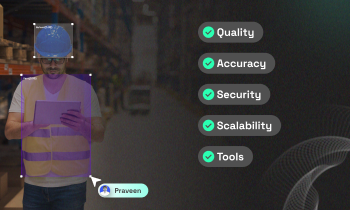Are voice cloning datasets covered under NDAs or MSAs?
Voice Cloning
Data Protection
AI Development
Navigating the legal landscape surrounding voice cloning datasets requires a keen understanding of Non-Disclosure Agreements (NDAs) and Master Service Agreements (MSAs). For AI-first companies, these agreements are pivotal in safeguarding data integrity and ensuring compliance with data privacy protocols such as GDPR.
Legal Frameworks Governing Voice Cloning Datasets: NDAs and MSAs
Non-Disclosure Agreements (NDAs) are legal contracts that protect confidential information shared between parties. In the realm of voice cloning datasets, NDAs ensure the confidentiality of sensitive data, including proprietary processes and speaker information.
Master Service Agreements (MSAs) outline the terms of service between businesses, covering payment terms, intellectual property rights and responsibilities regarding voice data usage.
Importance of NDAs and MSAs in Voice Cloning
In voice cloning, NDAs and MSAs play critical roles in:
- Ensuring Data Privacy: Voice data often contains personal information or unique vocal traits. NDAs guarantee that such data is not disclosed or misused.
- Clarifying Rights and Responsibilities: MSAs clearly outline what each party can and cannot do with the data, essential for projects involving multiple stakeholders.
- Facilitating GDPR Compliance: These agreements explicitly state obligations related to data handling, speaker consent, and usage limitations, making compliance more manageable.
Practical Application of NDAs and MSAs
The process of working with voice cloning datasets involves several steps:
- Negotiation: Both parties discuss and agree on the terms of the NDA and MSA. This phase is crucial for defining what constitutes confidential information and permissible usage.
- Agreement Execution: Once terms are established, all parties sign the agreements, legally binding them to adhere to the specified conditions.
- Data Access and Use: With agreements in place, companies can access voice cloning datasets, which include recordings, speaker attributes, and metadata essential for training AI models.
- Compliance Monitoring: Throughout the agreement's duration, both parties need to ensure adherence to the terms, possibly through regular audits or reviews.
Real-World Implications of Inadequate Agreements
Without robust NDAs and MSAs, companies risk:
- Legal Penalties: Breaching data privacy laws or failing to protect confidential information can lead to severe legal consequences.
- Operational Setbacks: Misunderstandings about data usage rights can disrupt project timelines and objectives.
- Data Misuse: Without clear agreements, the risk of data being used in unethical or unauthorized ways increases.
Common Missteps and How to Avoid Them
Many teams encounter issues with NDAs and MSAs due to:
- Vague Terms: Ensure specific terms are articulated to prevent misunderstandings about rights or confidentiality.
- Neglecting Compliance: Regularly review agreements and stay updated on legal regulations to maintain compliance.
- Generic Agreements: Tailor NDAs and MSAs to reflect the unique aspects of your voice cloning project, avoiding the pitfalls of one-size-fits-all solutions.
Key Takeaways for Complying with NDAs and MSAs in Voice Cloning
Understanding and implementing effective NDAs and MSAs is crucial for AI companies leveraging speech data collection. By ensuring data privacy, clarifying responsibilities, and maintaining compliance, organizations can effectively harness voice cloning technologies while protecting sensitive information.
For AI-first companies looking to integrate voice cloning technologies seamlessly, FutureBeeAI stands as a trusted partner, providing high-quality and compliant datasets critical for successful deployment.
Smart FAQs
Q. What are the typical agreements required for accessing voice cloning datasets?
A. NDAs and MSAs are commonly required. NDAs protect confidential data, while MSAs outline terms of service and responsibilities.
Q. How can teams ensure compliance with NDAs and MSAs?
A. Teams should consistently review their agreements, stay informed about legal regulations, and conduct audits to align data handling practices with the terms outlined in their NDAs and MSAs.
What Else Do People Ask?
Related AI Articles
Browse Matching Datasets
Acquiring high-quality AI datasets has never been easier!!!
Get in touch with our AI data expert now!








